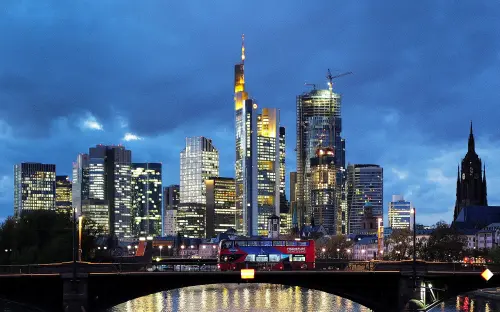Business sentiment in Germany unexpectedly stalled in February, as revealed by a survey on Monday, presenting a challenging scenario for the future government following Sunday's election. The Ifo institute reported that its business climate index held steady at 85.2, having revised the January figure slightly upward to the same number.
Expectations had indicated a modest increase to 85.8, as projected by analysts surveyed by Reuters. The election resulted in a victory for Friedrich Merz's conservative CDU/CSU opposition, pledging to streamline bureaucracy, promote investments, and reduce energy costs to revitalize the country's contracting economy.
Ifo's current conditions index dipped unexpectedly to 85.0 from January's 86.0, while the expectations index climbed to 85.4 from 84.3. Ifo's president Clemens Fuest described the German economy as "in waiting", as the country embarks on government formation talks, with a grand coalition seeming the most likely outcome.
Analysts cautioned that a coalition leaning towards the far left and right could complicate reform efforts, particularly in areas like budgetary constraints. Echoing the sentiment, Thomas Gitzel, chief economist at VP Bank Group, stressed the need for prompt government action to jumpstart the economy.
According to Jens-Oliver Niklasch, senior economist at LBBW bank, although signs of stabilization are emerging, challenges in foreign trade persist. He emphasized the urgency for growth-oriented reforms, anticipating a potential economic upturn in the latter half of the year at the earliest. Amidst Europe's largest economy grappling with its second consecutive year of contraction, another downturn in 2025 would signify an unprecedented period of economic fragility since the post-war era.
